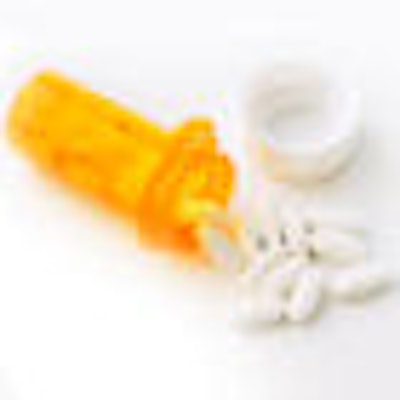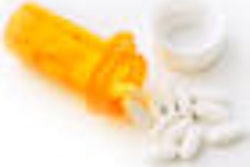
William Kane, D.D.S., of Dexter, MO, never thought he had a problem. He just liked the way he felt on diazepam ... then diazepam plus alcohol ... and then meperidine. It was only after a nearly fatal overdose that he finally faced up to his addiction.
“We know the pharmacology frontwards and back, so we play mind games.”
— William Kane, D.D.S.
This kind of denial is common among dentists, said Dr. Kane, who went on to play a leading role in Missouri Dental Association's Well Being Committee. Dentists often think their training and experience gives them more control than a layperson.
"Most dentists think, 'I can't be an addict. I'm a dentist,' " Dr. Kane said. "My job is getting them into treatment."
The topic of drug abuse among healthcare professionals has made headlines recently because of pop star Michael Jackson's death from an overdose of the anesthetic propofol. The New York Times and the Wall Street Journal both reported on propofol abuse as a growing problem among healthcare professionals, and celebrity news Web site TMZ.com reported that Jackson obtained illicit prescriptions from dentists.
But Dr. Kane said he knows of no instances of dentists abusing propofol, an opinion seconded by Brett Kessler, D.D.S., who serves in Colorado Dental Association programs aimed at guiding dentists out of addiction. "I don't know any dentists who abuse it," Dr. Kessler said. One reason may be that propofol is primarily used for the type of surgery done only by specialists.
No pure alcoholics
In actual numbers, dentists don't appear to abuse drugs anymore than the general public. That was the conclusion of a 2005 systematic survey, in which researchers from Brown University and the University of Rhode Island queried all the dentists in an unnamed "small northeastern state" about their abuse patterns (Journal of the American Dental Association, July 2005, Vol. 136:7, pp. 1023-1032).
The conclusion comes as no surprise to James Stillwell, executive director of Impact Drug and Alcohol Treatment Center in Pasadena, CA. Dentists may seem to have easier access than the general public, but drugs have become all-too available to the general public as well.
"If you have a propensity to use and abuse, you're going to find a way," he said. And by the same token, addicted dentists "are not addicts because they are doctors," he noted. "They are addicts because they are addicts."
But if dentists don't abuse more, they do abuse differently. In the JADA survey, 0.9% of the 113 dentists who responded reported "heavy alcohol use" in the past month, compared to 5.7% of the general public ages 50 to 54 (from a 2002 National Survey on Drug Use and Health). On the other hand, 6.2% of dentists reported abusing drugs other than alcohol in the past month, compared to 3.4% of the general public.
"Empirically, I can tell you it's prescription drugs," Dr. Kessler said. "Dentists can order thousands of Vicodin. And nitrous is big, just because it's right in front of us."
Dentists often start out with a legitimate use of a painkiller, according to Dr. Kane. For example, "They blew out their knee as a weekend warrior and took Vicodin while they were in surgery, and it made them feel good." In treating more than 400 dentists, he said he has rarely met one who is only an alcoholic. (Compared to medical doctors, though, the Rhode Island survey found dentists more likely to abuse alcohol.)
Getting treatment
Treatment issues differ for dentists as well. "We know too much for our own good," Dr. Kane said. "We know the pharmacology frontwards and back, so we play mind games."
When he went into treatment, Dr. Kane said, the other patients soon started asking him questions about drugs. That set him apart from the rest of the group, denying him the support he needed to confront his problem. "I think dentists and other healthcare professionals need to be treated with other healthcare professionals," he said. "And I think the treatment needs to be a little longer."
Dentists face an additional obstacle to recovery because they typically own their own business, so co-workers are reluctant to confront them or report them to authorities. If the dentist has to shut down the practice, the staff is out of work.
The consequences of abuse are also more severe for dentists than for people in most other professions because dentists depend on fine hand coordination to do a good job, and because they are in the position to do great harm if their judgment is impaired.
To cope with the unique problems of abusing dentists, every state dental association has set up a committee for dentists with substance abuse problems, Dr. Kessler said. Though names and procedures vary, the basic concept is the same: If dentists come to the committee for help, they will receive it anonymously and without prosecution. Often volunteers who are themselves dentists take the initial calls.
In Colorado, the committee will refer the dentist for evaluation, according to Dr. Kessler. If an expert confirms the abuse, the dentist must sign a contract agreeing to go into treatment. If the dental board receives reports that the dentist is abusing but the dentist is already under contract, the dentist remains anonymous. But if the board finds out that the dentist is abusing and hasn't signed a contract with the committee, the case goes into the public record.
Dentists who don't report themselves are sometimes reported by others. Sometimes the call comes from a colleague or courageous staff member. Other times their prescription patterns may catch the attention of a pharmacist. In Colorado, the committee waits for two independent complaints before taking action and asking the dentist to go into treatment. The board suspends the licenses of dentists who refuse treatment under these circumstances, until they are assessed and found not to be abusing.
Still, too many dentists are still practicing while addicted. "There are so many, it scares me," Dr. Kessler said.
Copyright © 2009 DrBicuspid.com



















